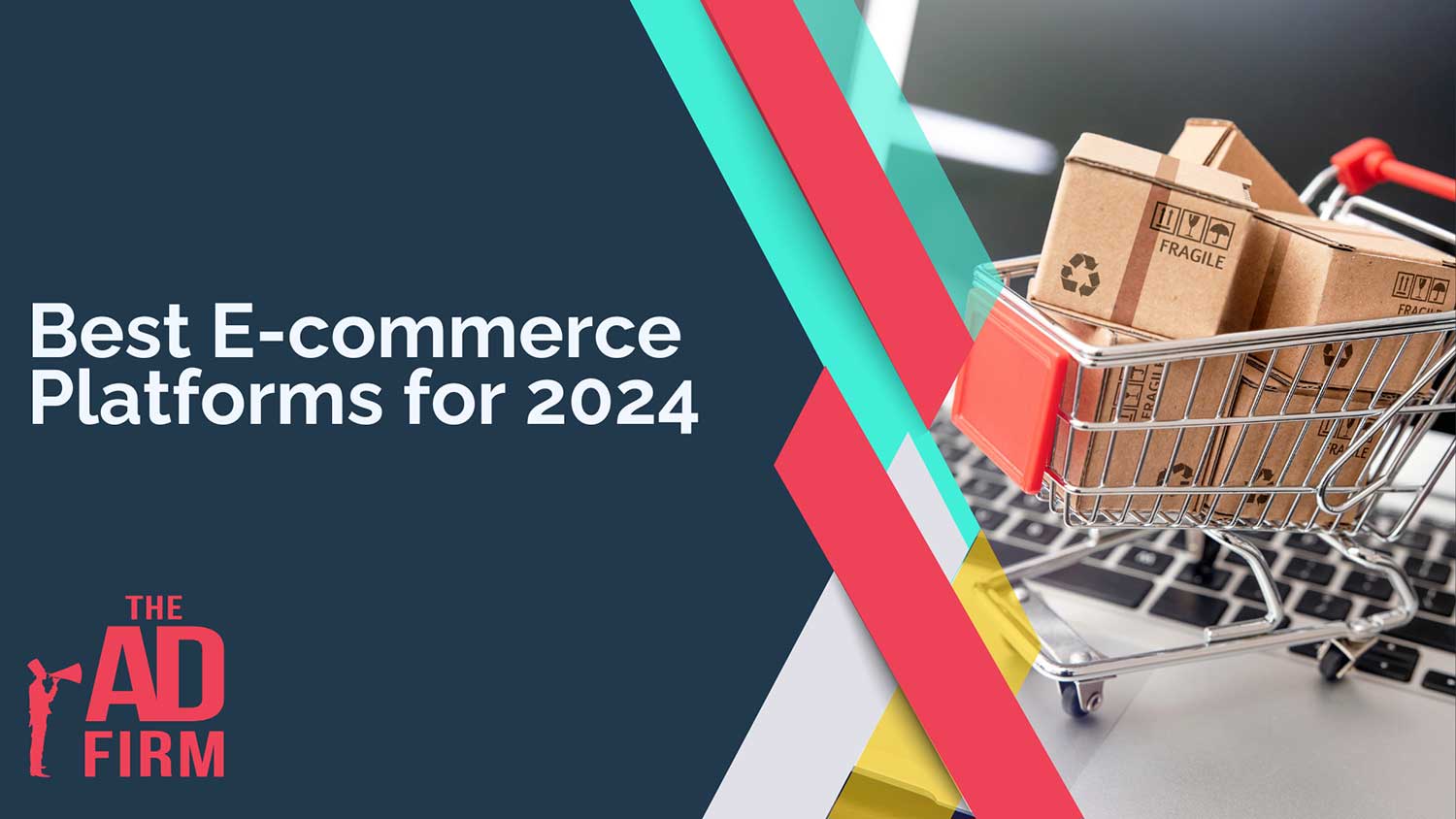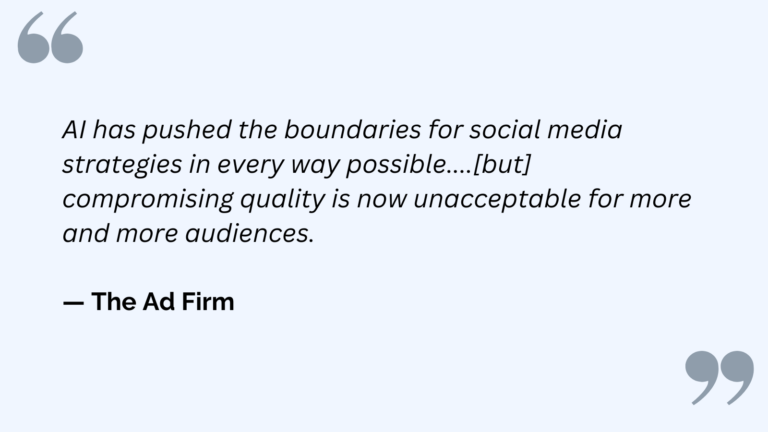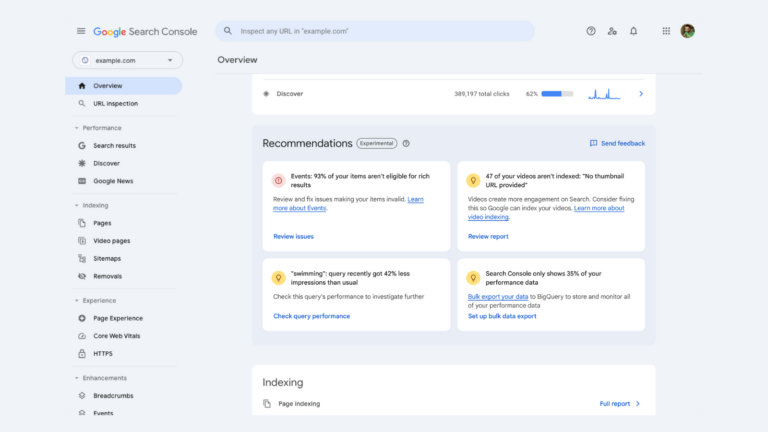When embarking on an online business venture, selecting the right e-commerce platform is crucial. It’s a decision that impacts not only the initial setup of your store but also its long-term success. The best e-commerce platform for your business should align with your operational needs, technical capabilities, and growth ambitions.
This guide will delve deep into the features, pricing, and specific business suitability of each leading e-commerce platform for 2024, helping you make an informed choice based on ease of use, scalability, features, and pricing.
Top E-commerce Platforms for Different Business Needs
The e-commerce platform you choose should be a catalyst for your business growth, adapting to your needs as your company evolves. In 2024, several platforms stand out for their unique capabilities and target user bases. Some of them are also rated by some of the best SEO company globally.
Below, we detail each of these platforms, considering what makes them ideal for different types of businesses, from startups to large enterprises.
Shopify
Shopify is the most popular e-commerce platform, making it a safe and reliable choice for businesses of all sizes. It offers powerful features and an intuitive user interface, making it easy to use even for those with limited technical knowledge.
Pricing: Shopify offers three pricing plans – Basic ($29/month), Standard ($79/month), and Advanced ($299/month). It also has a Lite plan at $9/month and Enterprise plans tailored to specific business needs.
Features:
- User-friendly dashboard: The dashboard is designed to be intuitive, making it easy for new users to navigate and manage their store efficiently.
- Wide range of templates and design options: Shopify provides a variety of templates that users can choose from, allowing them to create a unique and appealing look for their store.
- Custom domain name option: Users have the option to use a custom domain name to maintain brand consistency.
- Integrated payment gateway (Shopify Payments): Shopify offers its own payment gateway, which integrates seamlessly with the store setup.
- Mobile app for on-the-go management: The Shopify mobile app allows users to manage their store from anywhere, making it convenient for business owners on the move.
- App store for expanding functionality: Shopify’s app store contains numerous apps that can enhance the store’s functionality and improve user experience.
- Strong SEO capabilities: Shopify includes SEO features that help stores increase their visibility in search engine results.
Suitability: Shopify is suitable for small to medium-sized businesses, especially those with limited technical knowledge.
BigCommerce
BigCommerce stands out as a robust platform renowned for its comprehensive local SEO services capabilities and scalability, making it an excellent choice for businesses planning substantial growth. Its architecture supports high volumes of transactions and complex catalog management without compromising site performance.
Pricing Insights: The pricing for BigCommerce starts at $29.95 per month for the Standard plan, which equips businesses with all the necessary features to kickstart their growth. Notably, BigCommerce does not charge additional transaction fees, regardless of which payment gateway is used.
Key Features: BigCommerce offers a rich array of features out-of-the-box, such as:
- Multi-currency support: Allows businesses to sell globally by displaying prices in local currencies.
- Advanced discount and return management systems: These features simplify complex pricing strategies and streamline the return process, enhancing customer satisfaction.
- Comprehensive inventory management: Facilitates efficient tracking and management of stock levels across multiple channels.
Value for Large Businesses: The lack of transaction fees combined with powerful built-in features offers significant value for money, especially for larger enterprises that need extensive functionalities integrated directly into their platform. This can substantially reduce the reliance on third-party apps, cutting down on additional costs and potential compatibility issues.
Wix
Wix is particularly appreciated for its straightforward and user-friendly approach, ideal for those new to e-commerce or without a technical background. The platform’s intuitive drag-and-drop builder and user-friendly interface make it easy for anyone to set up an online store quickly.
Pricing and Plans: Starts at $23 per month for the Business Basic plan, which includes basic e-commerce functionalities like secure online payments and order management.
Features:
- Drag-and-drop site builder: Enables users to easily create custom layouts without needing to code.
- Variety of templates: Provides a wide range of templates to suit different styles and industries.
- Mobile optimization: Ensures that all websites look good on mobile devices.
- App market: Extends functionality with a variety of Wix and third-party apps.
- Integrated payment solutions: Supports multiple payment methods including credit cards and PayPal.
Small Business Suitability: Wix is perfect for small businesses or individual entrepreneurs just starting out, offering all the essential tools to get an online store up and running with minimal fuss.
Limitations for Growth: As businesses grow, they may find Wix’s feature set somewhat limiting, especially when it comes to more advanced e-commerce needs like extensive inventory management or sophisticated marketing tools.
Scalability Concerns: While Wix is capable of supporting an expanding business to a degree, high-volume e-commerce operations might find it necessary to migrate to a more robust platform designed to handle increased traffic and more complex operations.
WooCommerce
WooCommerce is a popular choice among businesses that already use WordPress and desire extensive customization capabilities. It integrates directly with WordPress, converting any WordPress site into a functional e-commerce store, which leverages the robust content management capabilities of WordPress.
Customization and Flexibility: As an open-source platform, WooCommerce allows for extensive customization through the addition of plugins and themes.
Features:
- Extensive plugin ecosystem: Thousands of plugins are available to add functionality tailored to specific needs.
- Complete design control: Full control over store design with access to hundreds of themes and the ability to modify any aspect of the design.
- Built-in blogging: Leverages WordPress’s native blogging capabilities to enhance content marketing strategies.
- Product customization options: Offers various options for product personalization and customization.
- Inventory management: Advanced tools to manage stock levels, backorders, and more.
Technical Demands: Requires a good understanding of WordPress and some technical aptitude to manage and customize effectively.
Associated Costs: While the WooCommerce plugin itself is free, costs can accrue from hosting, purchasing premium themes or plugins, and potentially hiring developers for more complex customizations.
Ideal for Growing Businesses: Offers the flexibility and scalability that growing businesses need, particularly those that require a high degree of customization or have specific operational needs that can be addressed through the extensive WordPress plugin ecosystem.
Adobe Commerce (Magento)
Adobe Commerce (formerly known as Magento) is designed for tech-savvy merchants and developers who need a highly customizable platform capable of managing complex, large-scale e-commerce operations.
Target Audience: Adobe Commerce is aimed at businesses that have significant technical resources or the ability to hire developers, as the platform requires a high level of expertise to manage effectively.
Customization and Flexibility: This platform offers extensive customization options, from the user interface to backend processes, allowing businesses to create a tailored shopping experience that meets their specific needs.
Features:
- Advanced customization: Full control over the website’s look and functionality, allowing for unique and highly specific customizations.
- Robust product management: Comprehensive tools for managing a large inventory, including detailed product attributes and advanced pricing rules.
- Multi-store capabilities: Ability to manage multiple stores from a single admin interface, each with its own design and catalog.
- Scalable infrastructure: Built to handle high traffic volumes and large-scale operations.
- B2B functionality: Includes features tailored for business-to-business transactions, such as custom pricing and bulk ordering.
Technical Requirements: The platform’s complexity necessitates a high level of technical expertise. Businesses often need to hire developers to build and maintain their sites, ensuring everything runs smoothly and efficiently.
Cost Implications: Adobe Commerce is a self-hosted platform, meaning businesses need to manage their own hosting services. This can lead to significant additional costs, including:
- Hosting fees: Depending on the provider and the level of service, hosting costs can vary widely.
- Maintenance and security: Ongoing expenses to keep the platform secure and up-to-date.
- Developer fees: Significant costs can accrue from hiring developers for customizations and maintenance.
Enterprise-Level Solution: Adobe Commerce is best suited for large businesses that require advanced features and have the resources to invest in a powerful, but demanding, e-commerce platform.
PrestaShop
PrestaShop is an open-source e-commerce platform that offers a flexible and cost-effective solution for businesses willing to invest time in customization.
Open-Source Advantage: Being open-source, PrestaShop allows for extensive modifications without high upfront costs, making it an attractive option for businesses with specific needs.
Global E-Commerce Features: PrestaShop supports international sales out of the box, with features for multiple currencies, languages, and localized payment methods, which are essential for businesses aiming to reach a global market.
Features:
- Customization capabilities: Extensive options for tailoring the platform to meet specific business requirements through modules and themes.
- Multi-language support: Built-in support for over 75 languages, facilitating international sales.
- Product management: Robust tools for managing product catalogs, inventory, and pricing strategies.
- Marketing tools: Includes features such as email marketing, SEO tools, and promotional offers to enhance customer engagement.
- Analytics and reporting: Comprehensive analytics to monitor store performance and make data-driven decisions.
Technical Skill Requirements: While it is accessible to those with some technical skills, setting up and customizing PrestaShop to meet specific business needs can be complex. Users may need to learn how to manage modules and updates effectively.
Cost Considerations: Although the initial cost of entry is low, additional expenses can accumulate, including:
- Hosting: Businesses need to purchase their own hosting, with costs varying by provider and plan.
- Premium modules and themes: While many features are free, some advanced functionalities require paid modules.
- Technical support: Official support from PrestaShop comes at an additional cost, which can be a drawback for businesses on a tight budget.
Suitability for Various Business Sizes: PrestaShop is particularly well-suited for small to medium-sized businesses that need a customizable platform without the high costs associated with more structured solutions like Shopify or BigCommerce. It offers a robust foundation for businesses looking to scale internationally. Digital marketing services from agencies like The Ad Firm can help businesses take full advantage of PrestaShop’s global capabilities.
How to Choose the Right Platform
Finding the ideal e-commerce platform for your business is a crucial decision that impacts your operation’s success and growth. It goes beyond merely comparing features and prices; it’s about thoroughly assessing how each platform aligns with your specific business requirements, technical expertise, and future goals.
This section will guide you through the essential considerations to help you identify a platform that not only addresses your immediate needs but also can support your business as it evolves. Let’s dive into the key factors that will influence your decision.
1. Business Size and Scalability
The size of your business and its growth potential play critical roles in choosing the right e-commerce platform. If you’re just starting, you might need a platform that’s easy to set up and manage, possibly with fewer features that are more straightforward to use. For small to medium-sized businesses, platforms like Shopify and Wix offer simplicity and essential functionalities without overwhelming new users.
On the other hand, if you’re planning for significant growth, consider platforms like BigCommerce or Magento, which are capable of handling a larger product inventory and can scale up with complex business demands.
2. Technical Skills Required
Your technical expertise will significantly influence your choice of e-commerce platform. Platforms vary greatly in terms of the technical skills they require for setup, customization, and maintenance.
For instance, WooCommerce and Magento offer high levels of customization but require good technical knowledge or resources to manage effectively. If your technical skills are limited, you might prefer a more user-friendly platform like Shopify or Wix, where you can manage your store with minimal technical background.
3. Product Management Needs
Different platforms offer various levels of control and tools for managing your inventory, orders, and customer interactions. Consider what features are necessary for your product management needs. Do you require advanced inventory tracking, or will basic stock-level management suffice?
Platforms like Shopify and BigCommerce provide comprehensive product management tools that can automate many day-to-day tasks. On the other hand, platforms like PrestaShop allow for more manual control, which might be necessary depending on your specific business model.
SEO Capabilities
SEO is essential for driving traffic and increasing sales. Some platforms have better built-in SEO tools than others. For example, BigCommerce has a strong reputation for advanced SEO features, including URL customization and rich metadata capabilities, which can help your store rank higher in search results.
On the other hand, if SEO is a top priority and you have the skills, you might opt for a more customizable platform like WooCommerce, which can be fully optimized with the right plugins and settings.
5. Integration Options
Consider what external tools and services you need to integrate with your e-commerce platform. Do you use specific marketing, accounting, or inventory management tools that need to connect seamlessly with your store?
Platforms like Shopify and BigCommerce offer extensive app marketplaces with numerous integrations for various external services. This integration capability is crucial for ensuring that all aspects of your business can work together smoothly and efficiently.
6. Customer Service and Support
The level of customer support offered by an e-commerce platform can be a decisive factor, especially if you’re new to online selling. Platforms differ in the type of support they offer, from 24/7 phone support to live chat and help forums. Consider how important immediate support is for your business and how complex your needs are.
Platforms like Shopify are known for their reliable customer service, which can be a huge advantage if you encounter issues or need guidance on using the platform effectively.
Wrapping Up: Finding Your Perfect E-commerce Match for 2024
As you consider the various e-commerce platforms available in 2024, it’s essential to focus on what aligns best with your business’s specific needs and growth trajectory. The right platform will not only meet your current requirements but will also scale with your business as it evolves. It’s about finding a match that supports your products, caters to your customers, and integrates seamlessly with your other tools and services.
As your business grows, partnering with a skilled digital marketing agency like The Ad Firm can further enhance your online presence. Specializing in SEO, website optimization, and overall sales growth, The Ad Firm can help you maximize the potential of whichever e-commerce platform you choose, ensuring that your digital storefront attracts and retains customers effectively.









